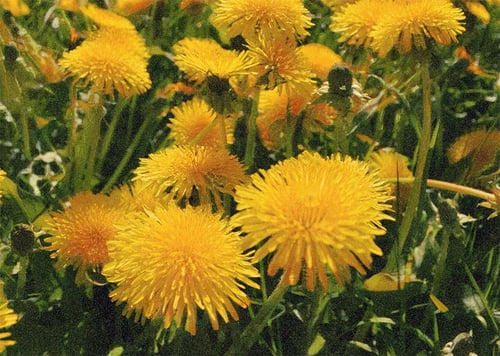
Fantastic weeds and where to find them
If you believe the dictionary, a ‘weed' (not that kind) is “any wild plant that grows in an unwanted place, especially in a garden or field where it prevents the cultivated plants from growing freely”. Unwanted? Latvians might disagree. Perhaps those plants are exactly where they belong.
Every spring, multiple how-tos and guides pop up to remind Latvians – in case they’ve forgotten – it's time to harvest the weeds. And Latvians are not alone. All around the world, wild plants have long been used in cooking, medicine – even fine dining (that's now very trendy, a wild fern here, some purslane leaves there).
After all, as part of its Biodiversity Strategy plan, the EU has been encouraging bringing nature back to cities, supporting urban meadows and making all these plants more accessible to everybody, not only those in the countryside. That puts the ‘unwanted’ weeds up for grabs.
Latvian ramen
Dandelion leaves can be picked nearly all year until the first frost, but blossoms – for healthy syrup or honey – are only a spring affair. To mellow the bitterness, soak them in saltwater for a few minutes. Goutweed, a humble weed that grows literally everywhere, makes a great pesto or salad green.
And most of the herbal teas – like cornflower, verbena, chamomile and white or red clover – that can be found in meadows should be harvested before midsummer, while they’re still in early blossom and all their vitamins are not used for making their fruit. Or look out for nettles, the zig-zaggy greens that make your skin itch and burn. They are best for a vitamin-rich soup in early spring.
Baby-nettles soup is my aunt's legacy. She never misses the season and is always on watch to make sure she can get multiple harvests per spring. It's basically Latvian ramen: nettles, potatoes, and a boiled egg on top.
In my family, foraging has always been present. Quite often you'd find a yarrow, dropwort, or sagebrush drying on a cloth upstairs, at my parents', grandparents' homes, and across the whole family tree.
So – before we announce that weeds are unwanted, we better do some proper self-reflection about human-nature connection: everything has a purpose. “Nezāles neiznīkst” (“weeds don't die”), as the Latvian saying goes – you can try to remove them, but they will always find their way back.